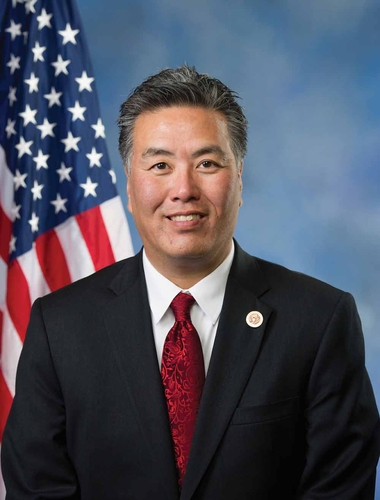Defense legislation should not be a platform to advance discrimination

by Rob Howard
Associate Editor
Buried in the original House version of the National Defense Authorization Act (NDAA) was language that would have allowed religious organizations doing business with the federal government to fire or punish any employee based on their sexual orientation or gender identity.
The provision, authored by Oklahoma Fifth District Rep. Steve Russell, would have effectively nullified President Obama’s executive order that protected employees of federal contractors from anti-LGBTQ discrimination.
The April 2015 executive order was hailed as a civil rights victory for LGBTQ people. It extended protections to government employees against discrimination because of gender identity; protections were already in place for sexual orientation.
Just as important, in the eyes of LGBTQ activists and allies in Congress, the order prohibited all federal contractors from discriminating against current and future employees based on both sexual orientation and gender identity.
Rep. Russell, calling the executive order “vague”, told The Gayly that the order “left vulnerable the renewal of defense contracts with faith-based entities and would discriminate against them based simply on their religious charters. This violates the Constitution.”
The “Russell Amendment” language would undo those protections. A reading of the amendment doesn’t fully reveal its far-reaching impact. It would allow “any religious corporation, religious association, religious educational institution, or religious society” doing business of any sort with the government to discriminate based on sexual orientation or gender identity.
It extends that ability to discriminate far beyond government contractors, because it includes religious organizations applying for grants, selling products to the government or reaching a cooperative agreement with the government.
Thankfully, the provision didn’t make it into the final conference committee bill, which was passed by the House and Senate in early December, and signed by the President.

Rep. Mark Takano, an outspoken critic of the Russell Amendment, applauded the removal of the language, telling The Gayly, "Legislation that funds our national defense should never be a platform to advance discrimination. I am proud that I could join with my colleagues to ensure the Russell Amendment was stripped out of the NDAA.”
The Russell Amendment restricted legal protections to those included in the Civil Rights Act of 1964, and the Americans with Disabilities Act of 1990. Both protect individuals against discrimination based on “race, color, religion, sex, or national origin,” but not based on sexual orientation or gender identity, although the EEOC and some courts have said the term “sex” includes both.
Rep. Russell continues the Republican position that pits religious freedom, guaranteed by the First Amendment, against LGBTQ protections against discrimination, which are supported by the provisions of the Fourteenth Amendment. It guarantees equal protection under the law. He said, “Religious exemptions are guaranteed under existing law and have always been protected by the First Amendment.
Rep. Russell said he thinks his measure is important, citing the many defense contractors with religious charters which provide “vital relief work on battlefields, in refugee aid, and in supporting returning veterans.”
President Obama had threatened to veto the original House version of the NDAA in a 17-page document that objected to many provisions and restrictions contained in the act, including the Russell Amendment.
Saying he is supporting the Constitution, Russell said, “Since I was 18, I have been defending the Constitution of the United States and will continue to do so in any capacity where needed,” suggesting that we have not seen the last of his religious exemption language.
Rep. Takano agreed, saying, “Unfortunately, beating back anti-LGBT provisions is a constant struggle under a Republican Congress, and that task is about to become much more difficult.”
After the original House version of the NDAA passed, openly gay Rep. Sean Patrick Maloney (D-NY) offered an amendment to a related defense spending bill that would have nullified the Russell language. It appeared that his amendment had passed 217-206, but House GOP leadership got a few members to change their votes from yes to no. The final vote was 212 yes, 213 no and the amendment failed. Democrats reacted with boos and cries of “Shame!”
That razor thin margin is at least encouraging, although the result was a defeat. It is uncertain whether a future measure containing Rep. Russell’s language would get past a filibuster in the Senate, but if it did pass that body, it is almost certain that President Trump would sign the measure.
Rep. Takano said it best: “The voices of LGBT activists and allies will be critical to putting pressure on Congress and the incoming Administration to protect the fundamental American principle of equality under the law.”
Copyright 2017 The Gayly – January 21, 2017 @ 1:55 p.m.





